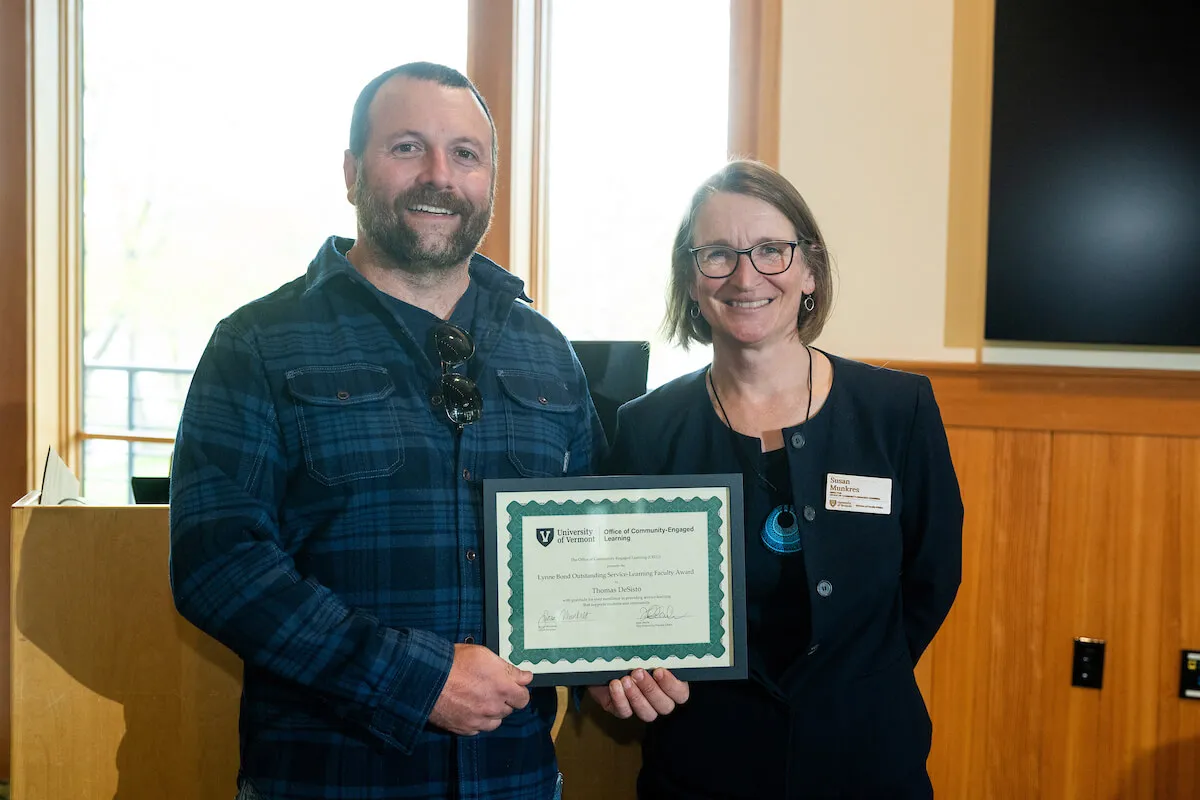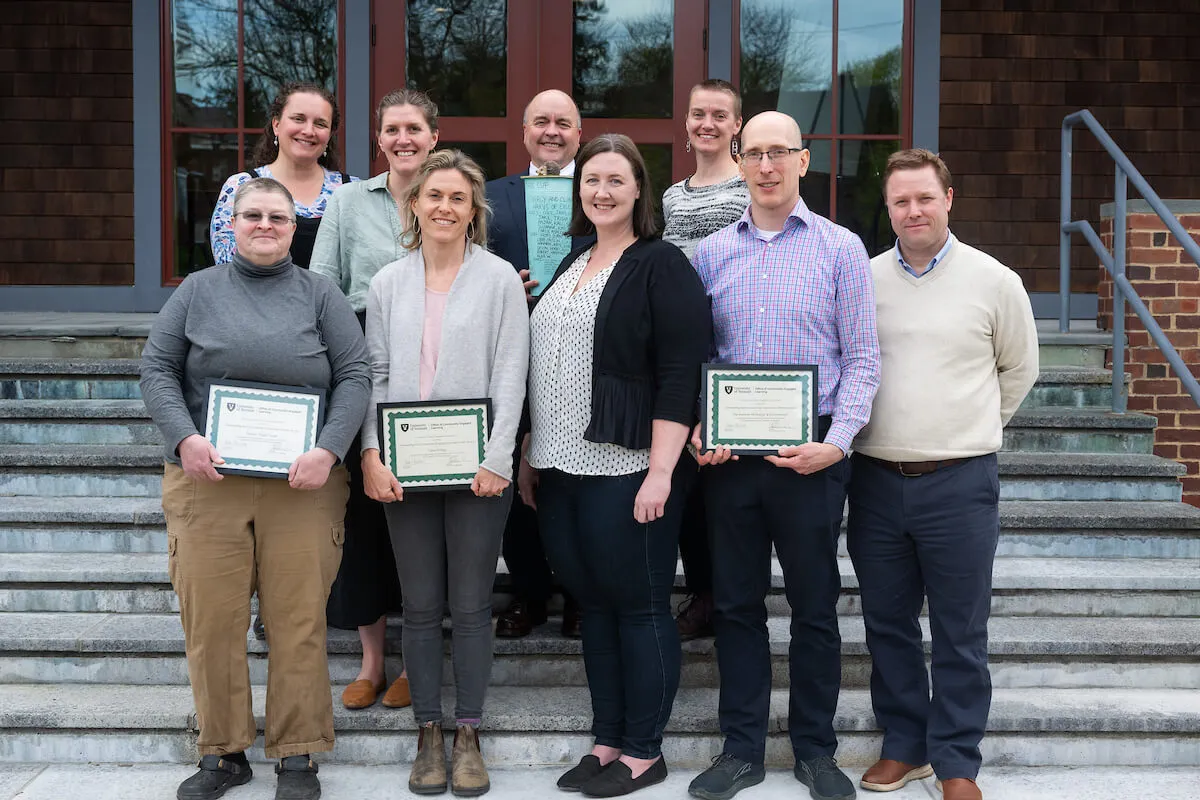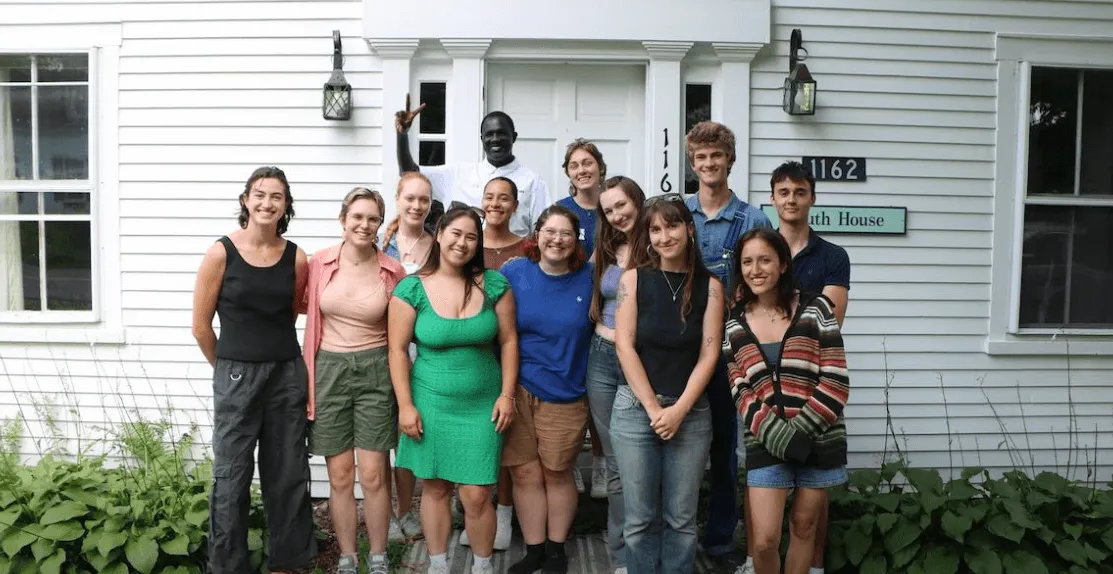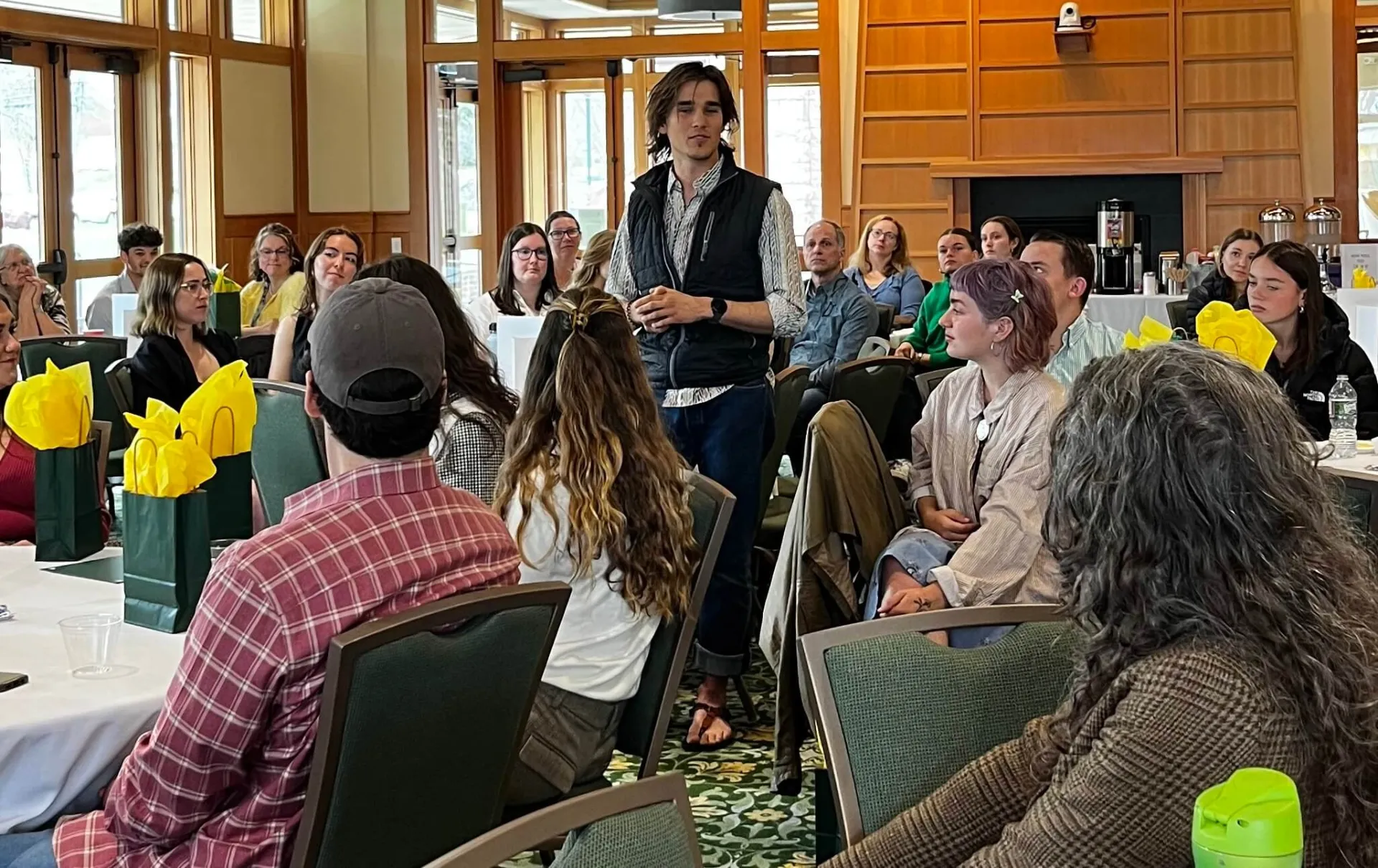DeSisto, a Senior Lecturer in the Department of Community Development and Applied Economics, says he's delighted with the honor. "This is the award that I hoped to attain because so much of what I want to do is connect students with the community."
DeSisto, who is also a UVM alumnus, says his desire to work with the community began the day he first arrived in Burlington in 1997. Before his first semester in college, he participated in a UVM program called Wilderness Trek, in which UVM freshmen, along with two current UVM students who act as guides, hike part of the Long Trail before arriving on campus to start their first term. "A new friend I had made through the Wilderness Trek program, and I just walked through Burlington. We didn't have a map. We just wandered through the streets, talking to people on their stoops, trying to integrate and connect with the local community as much as possible. It's so easy to want to hang out in the dorms and stay on campus. But our focus was really just talking to people. Getting out into the neighborhoods, getting to know people, and seeing what's actually going on in the broader community. So, from the time I was an undergrad, that was my thinking, not only staying in the academic sphere on campus, but integrating myself more into the broader community.”
The same philosophy infused his first position working at UVM. "I was working full-time as a researcher at the Center for Rural Studies, and a lot of what I was doing there was getting students to survey Vermonters. "Students were interviewing different focus groups. Back then, we used to have a call center, and we would call Vermonters, asking them questions about their preferences: What they liked? What their lives were like? What did they want their community to look like? And in that way, I got students to connect with local people."
A few years later, he began teaching as a lecturer in CDAE. Even in his first course, Sustainable Community Development, he emphasized community involvement. One of his assignments required each student to find a community meeting and attend it, take notes, and interact with the people there in that space. He explains the impact on both the students and the meetings, "Students would go to a City Council meeting. Or they would go to a public works meeting. Or it might be something more community-focused, like a neighborhood planning assembly. Again, I was trying to find different ways to get students off campus into communities, to see the messiness of democracy and community organizing. Oftentimes, they would be the youngest person there by twenty years. They'd make a splash just being there."
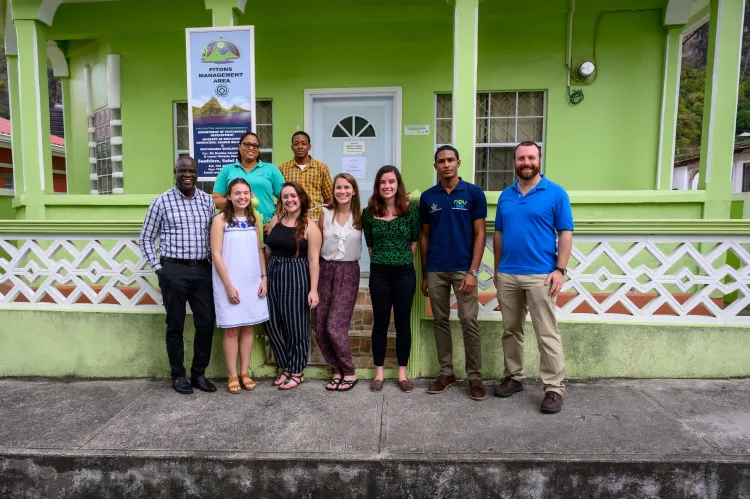
When he was hired as a full-time Lecturer in CDAE over a decade ago he began co-teaching with State of Vermont Economist, Kevin Stapleton, a community-engaged learning course that focused on the Caribbean Island of Saint Lucia. The Saint Lucia program started in 2003 when Philip Maclaurin, then Director of the Consumer Affairs Department in Saint Lucia, met CDAE Department Chair Jane Kolodinsky at a California meeting of the American Council on Consumer Interests. Mcclaurin asked Kolodinsky for UVM's help with community development efforts in Saint Lucia. DeSisto and co-faculty Kevin Stapleton currently continue to team teach the course, which is spans a semester plus two weeks spent on the ground in Saint Lucia. Students collaborate with the government of Saint Lucia on various community projects and reports, and each student has a role and is responsible for their own professional aspect of the project.
DeSisto points out that running a community-engaged learning course differs fundamentally from teaching a regular college course. As in any course, the instructor needs to cover the course material in the timeframe of the class, but in addition to the content, in a community-engaged learning course, a good deal of time must be spent covering additional aspects such as teambuilding and planning for the unexpected.
"You have to deal with interactions of partners, and teach the students teamwork, because even when a student does an individual project, they're still building a team in some way, either working with a community partner, or just with other people in a community. There are more elements that are happening, and there's also just the complexity of the actual projects. In a community-engaged learning or service-learning class, we encounter things such as the partner not showing up one day, or someone getting sick. The space in which the projects are happening is so much larger, so there are many more variables than in a closed classroom. Part of preparing students is offering them scenarios. One thing we did this fall in the course preparing students to go to Saint Lucia was that I had this scenario that I posed for all the students in the second or third week of the semester: One day, you go to the required breakfast spot at 7:00AM where we meet altogether every day. The students have to be ready, and part of that is to make sure everyone's there, that no one has gone off missing. So, my scenario is they come to breakfast at 7:00 AM, and that day, Thomas and Kevin are not there. The two teachers are not there. What do they do? It's a challenging situation for the students because there are 18 to 20 of them. Who's the leader in that situation? It would be really easy for them to just kind of continue with breakfast uncomfortably, not acknowledging the realities. But they must manage the situation. Who goes and knocks on our doors? Who messages us? Do they call the authorities? And so, we have the students take time to think about what they would do, and then actually talk it through. Then Kevin and I give them our recommendations. And I have a slide saying, ‘OK, whatever the project plan is for today, that's paused. We have people who are missing. We now have to turn our attention to dealing with this crisis that we're now dealing with.’
In a normal campus course, students assume the Professor will show up, but in this situation, so many things could happen, so we try to prepare them. We work through various scenarios, and the other really important part is getting the students to know each other, because when we're going out into these communities, they have to have a sense of who the other people are in the room. A better understanding than they would need to have in a regular class.”
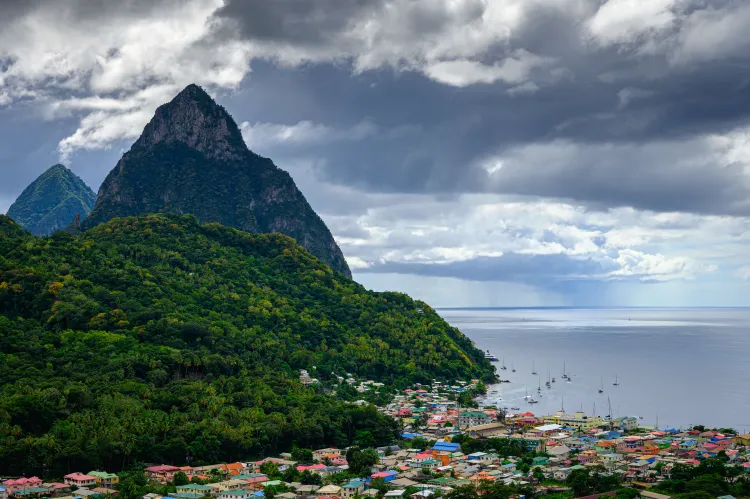
DeSisto also sees the value in giving students a learning situation without external distractions. "These courses oftentimes offer a student the ability to have a very targeted experience. We are abroad from January 1st to about the 12th. So, we're usually there for about two weeks or just shy of it. And during that time, that's pretty much all the students are working on. They're not taking any other classes. They're not with their friends or family. They're in this other country working on this very intense project, and that's all they're focusing on. It's so great to put all of their focus into one thing instead of having three or four or five different classes competing for their attention. There's also the fact that they're in a new place with new people, and they're really relying on each other. One of the most rewarding things is in the evenings, at dinner, at breakfast, or after dinner, as the sun sets, we're walking around town, and the students are still discussing these topics with us.”
"As faculty, we're thinking about how a process occurs. How do you actually do the thing that you said you were going to do? How do you actually start a project and bring it through to completion? Yes, you've learned about project management, and you've learned about event planning. You've learned about marketing or, you know, developing materials or whatever. But how do you actually do that with a real client? With someone that you're really working with.
That element is so critical, and we are facilitating these exchanges, but we're also stepping back to some degree and letting the students work through certain things, which is important."
The Saint Lucia trip has been popular, and students consistently tell him that it changed their lives and career trajectory, or both. Reese Morgan, a rising senior who did the trip this January, posted on her LinkedIn about her experience, "Thanks to Thomas DeSisto and Kevin Stapleton, two professors who have largely shaped my college experience over the past semester and this trip. This experience has undoubtedly been one of the best in my life thus far, and I will never be able to express how I've been shaped from this trip."
DeSisto feels that stronger bonds than usual form during these courses, and he's been struck by how many students from his service-learning courses stay in touch with him in the years that follow their graduation.
After teaching the Saint Lucia course for several years word about the work he and his students were doing in Saint Lucia reached the residents in Burlington's Old North End (ONE), and several ONE community leaders approached CDAE to request that he run a similar course focusing on community development projects in the ONE. DeSisto then designed a new course called, Local Community Initiatives, which provides a similar pedagogical process for community development with a local focus.
In 2016, students in that course helped plan a bike park. This year, nearly a decade later, the City of Burlington is building the park. "They're breaking ground on that project this spring, and the bike park should be done by the fall. It is my understanding as well as the Burlington Bike Association's, that the initial meeting, and the first time they ever met to discuss this, was in my class in 2016. The pandemic slowed it down a bit, but hundreds of thousands of dollars of bike park is going to come out of that class. What an amazing thing for the students, the community, and everybody!"
DeSisto explains that community-engaged learning courses have their own challenges. "I would say to other faculty, it's not for everyone. It definitely increases your stress, and you know, there are lots of opportunities for things to go right, and for things to go wrong. And so, you just need to have some ability to roll and adjust, and realize that you're not going to be doing everything perfectly. You're going to make mistakes, and you just need to recognize what those are and try your best not to repeat them. So, although it can have a lot of benefits for community members, I think faculty can underestimate how much time, and effort, and attention it takes."
He's quick to give a shout-out to the CELO team and the support that they provide to faculty who want to teach community-engaged learning courses or service-learning courses at UVM. "It's great to have Susan and Tom. CELO makes space for us to get together with other faculty. It's a real pleasure to be able to work with faculty in other colleges across the campus to say, 'Oh, this is what you're doing in education or in engineering, geography, or whatever the department is… and see what's working and what's not."
The CELO office reports that community-engaged learning at UVM is on the rise. 135 CEL courses were offered in 2024, and over 2700 students enrolled in them. More than 50% of the 2024 graduates passed at least one CEL or service learning course. As DeSisto explains, this makes all the difference: "So, there's this whole framework at UVM that supports this work. The administration realizes that these classes require greater support, but also that they have great impacts, for both the students and the communities."
Congratulations Thomas DeSisto!
